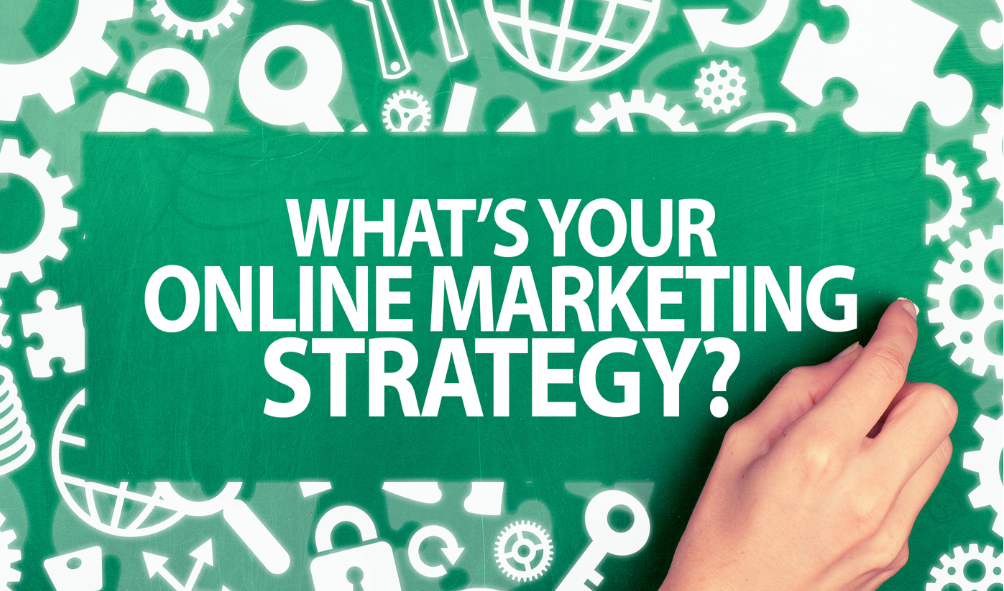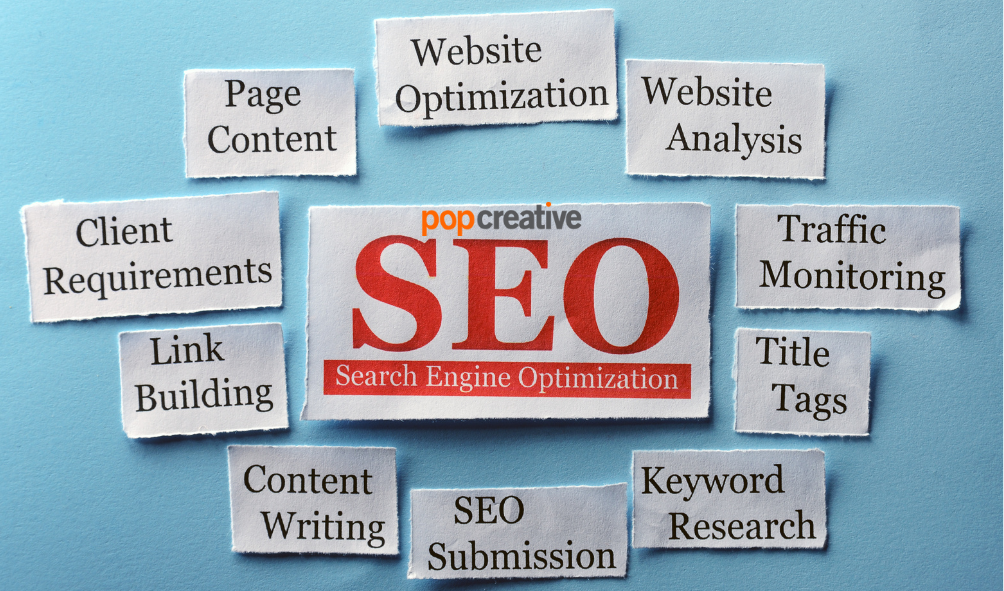In today’s rapidly evolving digital landscape, staying ahead of the curve is crucial for any business looking to thrive and succeed. With countless digital or online marketing strategies and tactics at your disposal, it’s important to identify the most effective ones to ensure maximum impact and return on investment. In this article, we will explore five effective online marketing strategies that will help you stand out from the competition and drive growth.
From engaging content creation to data-driven social media advertising, these strategies are designed to elevate your online presence, increase brand awareness, and generate valuable leads. We’ll delve into the importance of search engine optimization (SEO) and how to optimize your website to rank higher on search engine result pages. Additionally, we’ll explore the power of influencer marketing and how to leverage partnerships with influential individuals to expand your reach.
Whether you’re a small startup or an established enterprise, these online marketing strategies will empower you to connect with your target audience, build lasting relationships, and ultimately, boost your bottom line. It’s time to embrace the digital revolution and take your marketing efforts to the next level.
The importance of staying ahead in online marketing
Online marketing is a dynamic field that is constantly evolving. To stay ahead, it’s crucial to keep up with the latest trends and developments. By staying ahead of the curve, you can take advantage of new opportunities and stay one step ahead of your competition.
One of the key reasons why staying ahead is important is because consumer behavior is constantly changing. With the rise of technology and the internet, consumers have more choices and options than ever before. This means that businesses need to constantly adapt and evolve to meet the needs and expectations of their target audience.
Another reason why staying ahead in online marketing is important is because it allows you to take advantage of new technologies and tools. As technology continues to advance, new tools and platforms are constantly being developed that can help businesses reach their target audience more effectively. By staying ahead, you can be one of the first to adopt these new technologies and gain a competitive edge.
Finally, staying ahead in online marketing allows you to stay relevant and top of mind with your target audience. In today’s fast-paced digital world, consumers have short attention spans and are constantly bombarded with information. By staying ahead, you can ensure that your brand remains top of mind and that consumers continue to engage with your content and offerings.
Understanding the online marketing landscape
Before diving into the specific strategies, it’s important to have a solid understanding of the online marketing landscape. Online marketing encompasses a wide range of tactics and channels, including search engine optimization (SEO), content marketing, social media marketing, email marketing, influencer marketing, and more.
At its core, online marketing is about connecting with your target audience in a meaningful and impactful way. It’s about creating valuable and engaging content that resonates with your audience and drives them to take action. It’s also about leveraging data and analytics to gain insights into consumer behavior and preferences and using that information to optimize your marketing efforts.
To effectively navigate the digital marketing landscape, it’s important to have a clear understanding of your target audience and their needs. This involves conducting market research, analyzing data, and developing buyer personas. By understanding who your target audience is and what they want, you can tailor your marketing strategies to better meet their needs and expectations.
It’s also important to have a solid grasp of the different digital marketing channels and how they work together. While each channel has its unique strengths and advantages, they are most effective when used in conjunction with each other. For example, social media marketing can be used to drive traffic to your website, while email marketing can be used to nurture leads and convert them into customers.
By understanding the digital marketing landscape and how the different channels and tactics work together, you can develop a comprehensive and integrated marketing strategy that delivers maximum results.
Effective online marketing strategy #1: Content marketing
Content marketing is a very effective online marketing strategy that involves creating and distributing valuable and relevant content to attract and engage a target audience. The goal of content marketing is to provide value to your audience, establish your brand as a thought leader in your industry, and ultimately, drive profitable customer action.
One of the main advantages of content marketing is that it allows you to build trust and credibility with your audience. By consistently delivering high-quality content that addresses their pain points and provides solutions, you can position your brand as a trusted authority in your industry.
Another advantage of content marketing is that it can help improve your search engine rankings. By creating and optimizing content around relevant keywords and topics, you can increase your visibility on search engine result pages. This can drive organic traffic to your website and increase your chances of generating valuable leads.
To get started with content marketing, it’s important to develop a content strategy that aligns with your business goals and target audience. This involves identifying the topics and themes that resonate with your audience, conducting keyword research, and creating a content calendar to ensure consistency.
Once you have your content strategy in place, it’s important to create high-quality content that is valuable, informative, and engaging. This can include blog posts, articles, videos, infographics, and more. It’s also important to promote your content through various channels, such as social media, email marketing, and influencer partnerships.
By consistently creating and distributing valuable content, you can attract and engage your target audience, build trust and credibility, and ultimately, drive profitable customer action.
Effective online marketing strategy #2: Search engine optimization (SEO)
Search engine optimization (SEO) is a critical component of any online marketing strategy. SEO involves optimizing your website and content to rank higher on search engine result pages, increasing your visibility, and driving organic traffic to your site.
One of the main benefits of SEO is that it can drive highly targeted traffic to your website. When someone searches for a specific keyword or phrase related to your business, appearing on the first page of search results increases the likelihood that they will click through to your site. This can result in increased brand exposure, website traffic, and potential leads.
To optimize your website for search engines, it’s important to conduct keyword research to identify the keywords and phrases that are relevant to your business and have a high search volume. Once you have your target keywords, you can incorporate them into your website content, meta tags, URLs, and other on-page elements.
In addition to on-page optimization, off-page optimization is also important for SEO. This involves building high-quality backlinks from reputable websites, as well as optimizing your website’s load speed, mobile responsiveness, and user experience.
It’s also important to regularly monitor and analyze your website’s performance with tools like Google Analytics. This will allow you to identify areas for improvement and make data-driven decisions to optimize your SEO strategy.
By implementing effective SEO tactics, you can improve your website’s visibility, drive organic traffic, and increase your chances of generating valuable leads and conversions.
Effective online marketing strategy #3: Email marketing
Email marketing is a highly effective online marketing strategy that involves sending targeted emails to your audience to nurture leads, build relationships, and drive conversions. Despite the rise of social media and other digital channels, email marketing remains one of the most powerful and cost-effective ways to reach and engage your audience.
One of the main advantages of email marketing is that it allows you to directly communicate with your audience in a personalized and targeted way. By segmenting your email list based on demographics, preferences, and behaviors, you can tailor your messages to better meet the needs and interests of each segment.
Another advantage of email marketing is that it allows you to automate your marketing efforts and save time. With email marketing automation, you can set up automated email campaigns that are triggered by specific actions or events, such as a user signing up for your newsletter or abandoning their shopping cart. This allows you to deliver relevant and timely messages to your audience, increasing the chances of conversion.
To get started with email marketing, it’s important to build a quality email list. This involves capturing email addresses through lead generation forms on your website, landing pages, and social media profiles. It’s also important to comply with email marketing regulations, such as obtaining consent from subscribers and providing an option to unsubscribe.
Once you have your email list, it’s important to create engaging and valuable content that resonates with your audience. This can include newsletters, product updates, promotional offers, and more. It’s also important to regularly test and optimize your email campaigns to improve open rates, click-through rates, and conversions.
By leveraging the power of email marketing, you can nurture leads, build relationships, and drive conversions, ultimately boosting your bottom line.
Effective online marketing strategy #4: Social media marketing
Social media marketing is a powerful and effective online marketing strategy that involves using social media platforms to promote your brand, engage with your audience, and drive website traffic and conversions. With billions of active users on social media, it’s a channel that can’t be ignored.
One of the main advantages of social media marketing is that it allows you to reach a large and diverse audience. With platforms like Facebook, Instagram, Twitter, and LinkedIn, you can target users based on demographics, interests, and behaviors, ensuring that your messages are seen by the right people at the right time.
Another advantage of social media marketing is that it allows you to build brand awareness and loyalty. By consistently sharing valuable and engaging content, responding to comments and messages, and participating in conversations, you can establish your brand as a trusted authority in your industry and build lasting relationships with your audience.
To get started with social media marketing, it’s important to choose the platforms that are most relevant to your target audience. This involves conducting market research and analyzing demographic data to identify where your audience spends their time online.
Once you have chosen your platforms, it’s important to develop a social media strategy that aligns with your business goals and target audience. This involves creating a content calendar, defining your brand voice and tone, and setting goals and metrics to measure success.
In addition to creating and sharing content, it’s also important to engage with your audience on social media. This can involve responding to comments and messages, participating in industry-related conversations, and running contests or giveaways to encourage user-generated content and engagement.
By leveraging the power of social media marketing, you can increase brand awareness, drive website traffic, and build lasting relationships with your audience.
Effective online marketing strategy #5: Influencer marketing
Influencer marketing is another effective online marketing strategy that involves partnering with influential individuals to promote your brand, products, or services. Influencers are individuals who have a large and engaged following on social media and are seen as trusted authorities in their respective niches.
One of the main advantages of influencer marketing is that it allows you to tap into the existing audience and credibility of influencers. By partnering with influencers who have a similar target audience as your brand, you can reach a wider audience and build trust and credibility with your target market.
Another advantage of influencer marketing is that it allows you to create authentic and engaging content that resonates with your audience. Influencers have a unique ability to create content that is relatable and authentic, which can help humanize your brand and build trust with your audience.
To get started with influencer marketing, it’s important to identify influencers who align with your brand values and have a similar target audience. This involves conducting research, analyzing engagement and reach metrics, and reaching out to potential influencers with a personalized pitch.
Once you have identified influencers, it’s important to develop a clear and mutually beneficial partnership. This can involve creating a contract or agreement that outlines the scope of work, deliverables, compensation, and exclusivity agreements.
It’s also important to provide influencers with the necessary resources and support to create high-quality content. This can include providing product samples, access to exclusive events or experiences, or collaborating on content creation.
By leveraging the power of influencer marketing, you can tap into the existing audience and credibility of influencers, create authentic and engaging content, and drive brand awareness and conversions.
Measuring the success of your online marketing strategies
Measuring the success of your online marketing strategies is crucial to ensure that you are getting a return on your investment and driving the desired results. By regularly monitoring and analyzing key metrics, you can identify areas for improvement and make data-driven decisions to optimize your marketing efforts.
One of the main metrics to track is website traffic. By using tools like Google Analytics, you can track the number of visitors to your website, where they are coming from, and how they are interacting with your site. This can help you identify which channels and tactics are driving the most traffic and conversions.
Another important metric to track is the conversion rate. This measures the percentage of visitors who take a desired action, such as making a purchase, filling out a lead form, or subscribing to your newsletter. By tracking conversion rates, you can identify areas of your website or marketing campaigns that may need improvement.
Other key metrics to track include engagement metrics, such as social media likes, shares, and comments, as well as email open rates, click-through rates, and unsubscribe rates. By tracking these metrics, you can gain insights into how your audience is interacting with your content and make adjustments as needed.
It’s also important to set goals and benchmarks for your online marketing efforts. By setting specific, measurable, attainable, relevant, and time-bound (SMART) goals, you can track your progress and ensure that you are making progress toward your business objectives.
By regularly monitoring and analyzing key metrics, setting goals, and making data-driven decisions, you can optimize your online marketing strategies and drive maximum results.
Tools and resources for implementing online marketing strategies
Implementing effective online marketing strategies requires the use of various tools and resources to streamline your efforts and maximize efficiency. Here are some essential tools and resources that can help you implement and optimize your online marketing strategies:
- Content management systems (CMS): A CMS, such as WordPress or Drupal, allows you to easily create, edit, and manage your website content without any coding knowledge.
- Search engine optimization (SEO) tools: Tools like Moz, SEMrush, and Ahrefs can help you conduct keyword research, track rankings, analyze backlinks, and optimize your website for search engines.
- Email marketing platforms: Platforms like Mailchimp, ConvertKit, and Constant Contact allow you to automate your email marketing efforts, segment your audience, and track the performance of your campaigns.
- Social media management tools: Tools like Hootsuite, Buffer, and Sprout Social allow you to schedule and manage your social media posts, engage with your audience, and track social media metrics.
- Analytics tools: Google Analytics is a powerful tool that provides insights into your
Conclusion: The future of online marketing
As technology continues to advance and consumer behavior evolves, online marketing will undoubtedly undergo further transformations. Staying ahead of the curve requires a willingness to adapt and embrace new strategies and tactics.
By focusing on engaging content creation, search engine optimization, data-driven social media advertising, and influencer marketing, you can position your business for success in the digital landscape. Remember, the key is to continually analyze and optimize your efforts based on data and consumer insights.
So, whether you’re a small startup or an established enterprise, these effective online marketing strategies will empower you to connect with your target audience, build lasting relationships, and ultimately, boost your bottom line. It’s time to embrace the digital revolution and take your marketing efforts to the next level.





Recent Comments